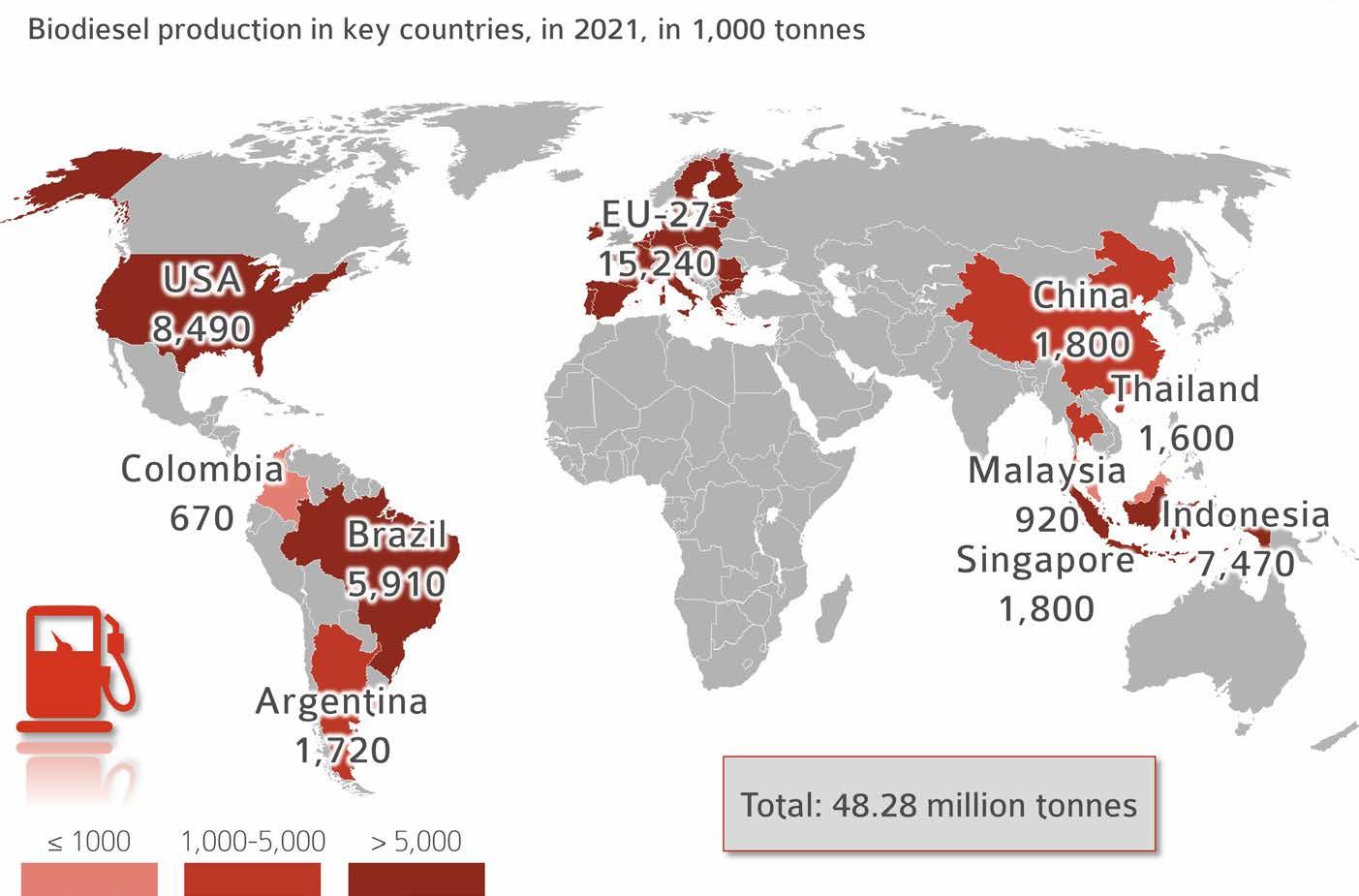
1 minute read
2.1 Which countries promote biofuels?
» 2.1.1 Global output of bioethanol
2.1.1.1 Major bioethanol producers in the EU-27
Advertisement
Production of bioethanol in the EU-27 increases
AMI
Sources: FAS, national statistics
2.1 Which countries promote biofuels?

» 2.1.2 Global output of biodiesel
The European Union is the single most important biodiesel producer worldwide, accounting for just under 32 per cent of global output or just over 15.2 million tonnes in 2021. The term “biodiesel” is used to refer to biodiesel (FAME = fatty acid methyl ester), hydrogenated vegetable oil (HVO) and biofuels made by co-processing vegetable oils in petroleum refineries. In Europe, biodiesel is mainly based on rapeseed oil. On the American continent, it is primarily based on soybean oil, which is a by-product of soybean processing and accounts for about 20 per cent of the bean (rapeseed oil > 42 per cent of the seed) and is increasingly used in biodiesel production as a result of steadily increasing harvest volumes, especially in Brazil.
Biodiesel production is concentrated in the EU-27, the US, Indonesia and Brazil. Indonesia has gained increasing importance as one of the top palm oil producing countries. The Indonesian government pushed ahead with the quota policy in response to supply surpluses and the associated price pressure on the vegetable oil markets. The increase in biofuel blending quotas caused output to rise to 7.470 million tonnes. Contrary to the EU, by raising the national blending quota requirements (B30/B40) the Indonesian government wants to make an active, i.e. politically intended contribution towards stabilising producer prices and cutting foreign exchange spending on imports of mineral oil. By contrast, biodiesel production in Malaysia was reduced for the first time.









